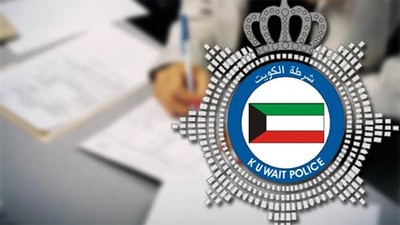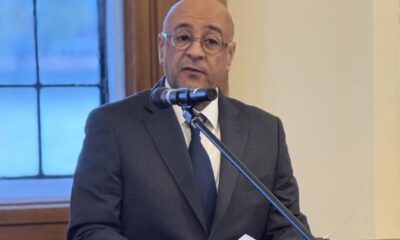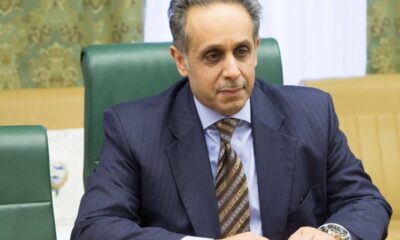Tarek Sultan, Vice Chairman of Agility KSCP
KUWAIT CITY, June 19: Agility Public Warehousing Company KSCP’s (Agility KSCP) new Board of Directors today announced a refocusing of its strategic direction, shaped by Kuwait’s promising growth outlook and aimed at accelerating infrastructure development.
The new strategy positions the company as a dedicated platform supporting Kuwait’s national development priorities under Kuwait Vision 2035.
This focus affirms Agility KSCP’s foundational mission, as defined by the Amiri Decree that established the company in 1979 to develop critical warehousing and infrastructure in Sulaibiya, Doha, and Mina Abdullah.
Positioning for Strategic Alignment with Kuwait Vision 2035
Agility KSCP is positioning its capital, operations, and leadership to support national economic priorities, with plans to invest more than KD 100 million through 2030. Agility KSCP will focus on high-priority sectors including:
● Facilitating government initiatives to attract FDI and develop Mubarak Al Kabeer Port.
● Contributing to the development of new economic zones such as the Northern Area project.
● Customs modernization and supply chain enablement.
● Industrial real estate and warehousing.
● Industrial waste management and recycling infrastructure.
● Development of major data centre projects.
● Promoting the resilience and security of Kuwait’s food and health care sectors.
The company’s streamlined, Kuwait-centric strategy unlocks operational agility and capital efficiency by consolidating its footprint in a growth market where it has long-standing execution capability and deep institutional knowledge.
Driving Impact Through Governance and Capital Alignment
To better support Agility KSCP’s new direction and improve the company’s responsiveness to government priorities, Agility KSCP is taking several structural steps:
● National alignment: Formation of a permanent senior board committee dedicated to aligning with national initiatives and enhancing stakeholder coordination, with a particular focus on deepening engagement and responsiveness to government priorities and policy direction.
● Unlocking shareholder value through an in-kind distribution of Agility Global PLC stake: Agility KSCP’s Board is enhancing value for its shareholders through an in-kind dividend distribution of an approximately 20% stake in ADX-listed Agility Global PLC to shareholders of Agility KSCP. This strategic move provides a direct and tangible return, allowing shareholders to benefit from a stake in a high-potential entity. By increasing Agility Global PLC’s free float, the distribution is expected to significantly improve share liquidity, enhance price discovery, and position Agility Global PLC for greater visibility and potential inclusion in key equity indices. This initiative reflects the Board’s ongoing commitment to maximizing shareholder value and aligning long-term interests.
● Fostering Kuwaiti Talent: Building on its longstanding commitment to developing Kuwaiti human capital, the company will intensify efforts to recruit, develop, and retain Kuwaiti nationals—who will serve as the driving force behind the strategy.
● New brand: To provide further clarity for shareholders and stakeholders, Agility KSCP will in due course carry a new name that reflects its new mission.
Together, these strategic priorities are designed to enhance focus and operational efficiency and unlock long-term value—reinforcing Agility KSCP’s position as a trusted industrial partner and key enabler of Kuwait’s economic growth.
Offering Investors Access to Kuwait’s Growth
Tarek Sultan, Vice Chairman of Agility KSCP, said: “As a company with deep national roots, we are aligning every aspect of our operations and capital allocation to serve Kuwait’s long-term economic transformation. This evolution to focus on Kuwait’s infrastructure priorities offers investors direct access to the country’s most promising non-oil growth sectors—backed by committed capital, local execution strength, and strategic alignment with government objectives.
Our KD 100+ million investment in Kuwait’s logistics and infrastructure sector underscores our belief in the country’s strategic geographic position, resilient economy, and fast-growing e-commerce market. We’re proud to support the development of advanced logistics and industrial infrastructure that will drive trade, create jobs, and contribute to Kuwait’s broader economic diversification efforts.”
In-Kind Dividend Announcement
Agility’s Board of Directors has approved an in-kind dividend for Q1, 2025 in the form of shares in Agility Global PLC, representing around 20% of Agility Global PLC’s issued share capital. Under the approved terms, eligible shareholders of Agility KSCP will receive 82 shares of Agility Global PLC for every 100 shares held in Agility KSCP.
This distribution reflects the Board’s ongoing efforts to unlock shareholder value, improve trading liquidity for Agility Global, and enhance the company’s eligibility for index inclusion.

















